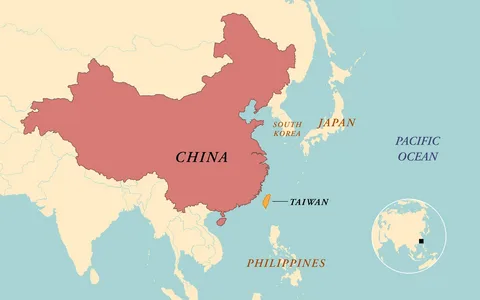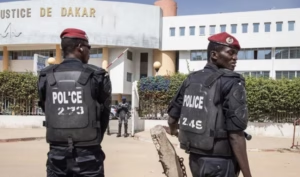Taiwan’s foreign minister, Lin Chia-lung, has made it clear that the island has no plans to move its unofficial embassy from Pretoria, the capital of South Africa, despite a formal request from the South African government. His comments came in response to Pretoria’s demand for Taiwan to relocate its “liaison office” to Johannesburg, the country’s economic hub. The request was issued with what South Africa described as a “reasonable” six-month deadline.
This diplomatic request was publicly highlighted on Monday, when Lin addressed Taiwan’s Central News Agency (CNA) and reiterated the island’s stance on the matter. The South African government, for its part, has indicated that moving the liaison offices would reflect a more neutral and non-diplomatic relationship with Taiwan, as opposed to an official diplomatic partnership. In a statement, Pretoria’s Foreign Ministry said:
“Relocating what will be rebranded as Trade Offices both in Taipei and in Johannesburg, which is standard diplomatic practice, will be a true reflection of the non-political and non-diplomatic nature of the relationship between the Republic of South Africa and Taiwan.”
However, Foreign Minister Lin emphasized that this request contradicts a long-standing agreement made between the two governments in 1997, which allowed for the maintenance of liaison offices in each other’s capitals despite the official severing of diplomatic relations. This agreement came into force after South Africa, like many other countries, officially recognized Beijing and withdrew formal ties with Taipei.
Lin also revealed that the pressure to relocate began last year, following the BRICS Summit, which included the attendance of Chinese President Xi Jinping. The summit was a key moment for China to strengthen its influence across Africa, and Lin suggested that Beijing has been applying additional pressure since the recent China-Africa Cooperation Forum, which South African President Cyril Ramaphosa attended in September. Lin stated that:
“China continued to exert pressure” following the China-Africa Cooperation Forum, which South African President Cyril Ramaphosa participated in last month.
China regards Taiwan as an inalienable part of its territory and regularly opposes any form of international recognition of the island’s sovereignty. South Africa’s demand for Taiwan to move its liaison office has come at a time of growing tensions between Beijing and Taipei, with the latter recently celebrating its National Day and openly rejecting China’s claims of sovereignty.
South African officials, however, have defended the request, stating that it aligns with international norms concerning the location of diplomatic missions. The South African government insisted that capital cities are the rightful places for embassies and consulates, and that Johannesburg, as the country’s commercial hub, is a more appropriate site for Taiwan’s trade-related office. In their view:
“Africa’s most developed economy has stated that the move ‘aligns with standard diplomatic practice that capital cities are the seats of foreign embassies and high commissions.’”
Taiwan has warned that if these discussions fail to result in a mutually satisfactory solution, it may close South Africa’s liaison office in Taipei, signaling a serious potential escalation in this diplomatic dispute. The deadline for the relocation of the Taipei office is set for the end of October, adding a sense of urgency to the ongoing negotiations.
Beijing, meanwhile, has voiced its approval of South Africa’s stance. Speaking on behalf of the Chinese government, Foreign Ministry spokesperson Mao Ning expressed satisfaction with Pretoria’s decision, framing it as a rejection of any aspirations for Taiwanese independence. She remarked:
“We appreciate South Africa’s correct decision to relocate the Taipei liaison office out of its administrative capital, Pretoria. Taiwan independence is unpopular and doomed to failure.”
The strained relationship between Beijing and Taipei has not only impacted Taiwan’s diplomatic standing in South Africa but also reflects a broader geopolitical struggle. China, which established its official embassy in South Africa in 1998, a year after Pretoria cut formal ties with Taiwan, continues to leverage its growing influence in Africa. Both countries are key members of the BRICS group, and their interactions are closely tied to wider global diplomatic and economic dynamics.

















